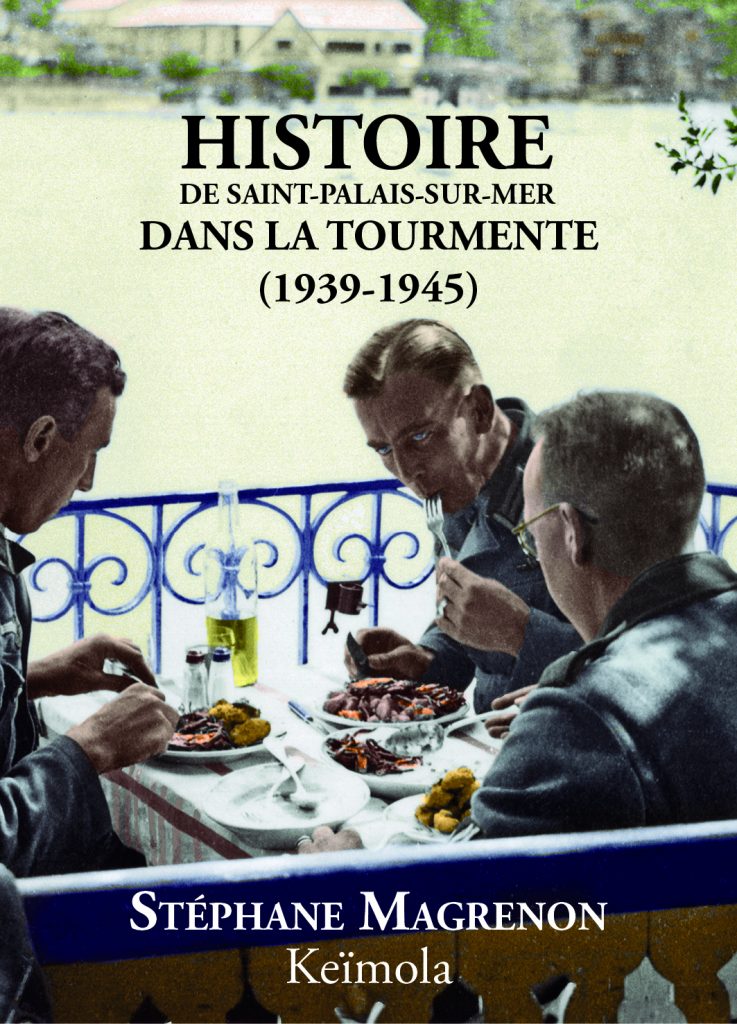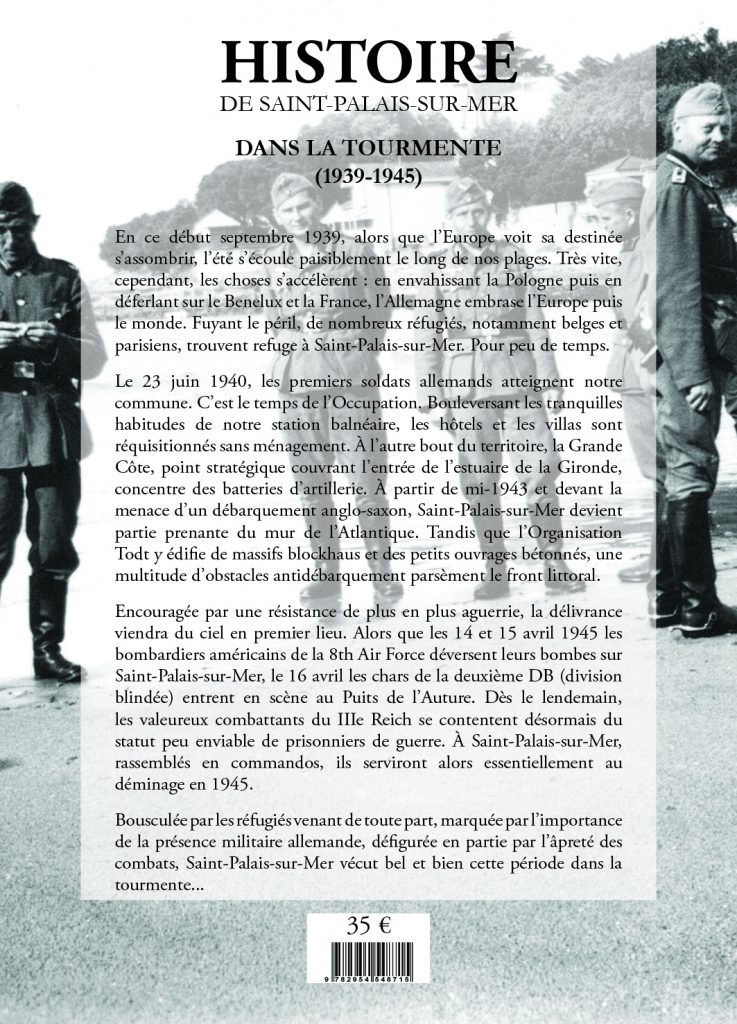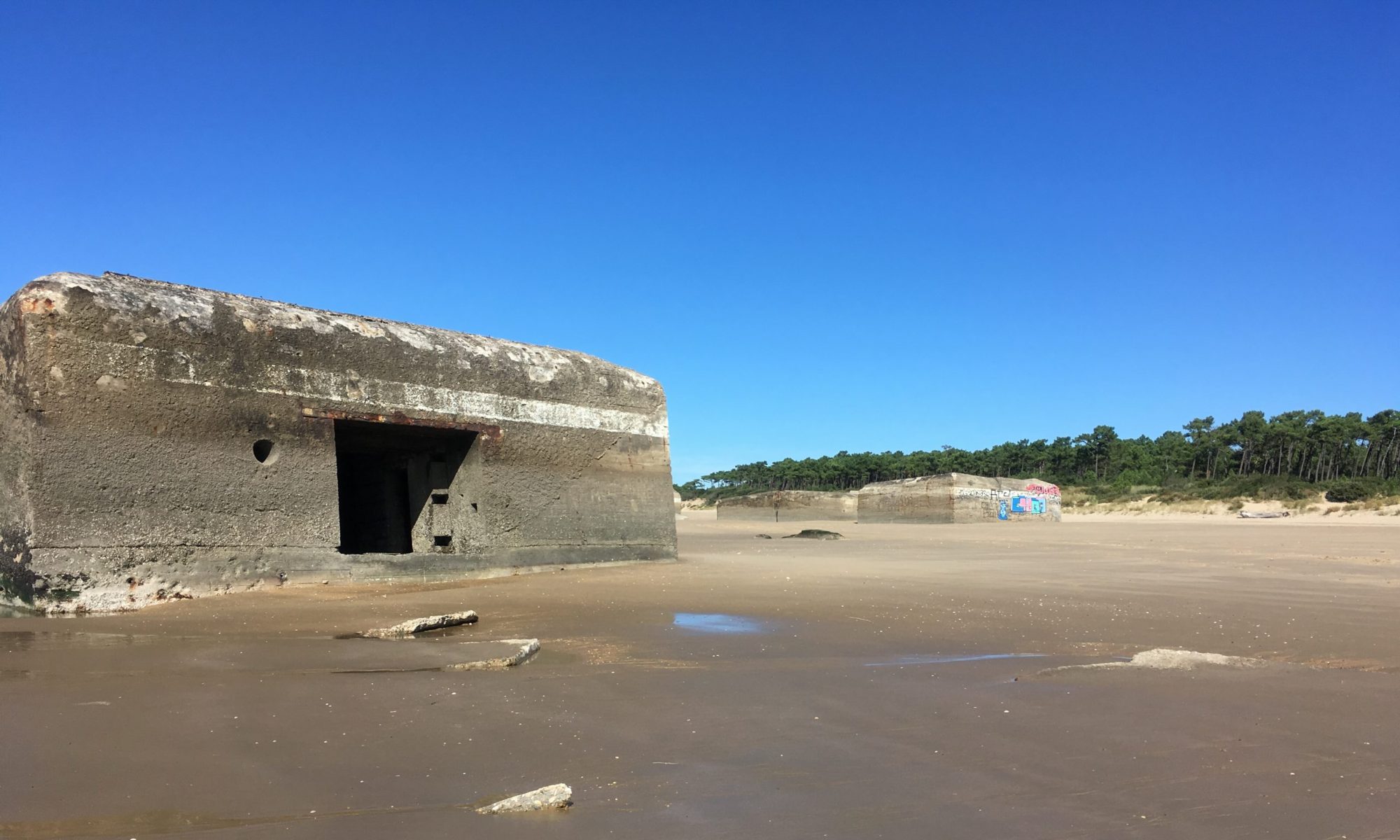History of Saint-Palais-sur-Mer : in turmoil (1939-1945) by Stéphane Magrenon
The first book devoted to the history of Saint Palais-sur-Mer during World War II

A historical narrative that plunges us into the heart of this eventful period. While the archives explored in France and Germany bring us the concern for historical detail, around 450 illustrations (photos, postcards...), mostly new, enhance the course of the book.

In early September 1939, as Europe sees its destiny darken, summer passes peacefully along our beaches. Very quickly, however, things accelerate: by invading Poland then by surging across the Benelux and France, Germany ignites Europe and then the world. Fleeing the danger, of many refugees, notably Belgian and Parisian, find refuge in Saint-Palais-sur-Mer. For little time.
On June 23, 1940, the first German soldiers reached our town. It is the time of the Occupation.
Upsetting the quiet habits of our seaside resort, hotels and villas are requisitioned unceremoniously. At the other end of the territory, the Grande Côte, a strategic point covering the entrance to the Gironde estuary, concentrates artillery batteries. From mid-1943 and faced with the threat of a Anglo-Saxon landing, Saint-Palais-sur-Mer becomes part of the Atlantic Wall. While that the Todt Organization builds massive blockhouses and small concrete works there, a multitude of anti-landing obstacles dot the coastline.
Encouraged by an increasingly seasoned resistance, deliverance will come from heaven in the first place. So that on April 14 and 15, 1945 the American bombers of the 8th Air Force dropped their bombs on Saint-Palais-sur-Mer, April 16 tanks of the second DB (armored division) enter the scene at the Well of Auture. From the next day, the valiant fighters of the Third Reich are now satisfied with the status unenviable prisoners of war. In Saint-Palais-sur-Mer, gathered in commandos, they will serve so essentially mine clearance in 1945. Hustled by refugees from all over, marked by the importance of the military presence German, partially disfigured by the harshness of the fighting, Saint-Palais-sur-Mer did indeed live this period in turmoil…

